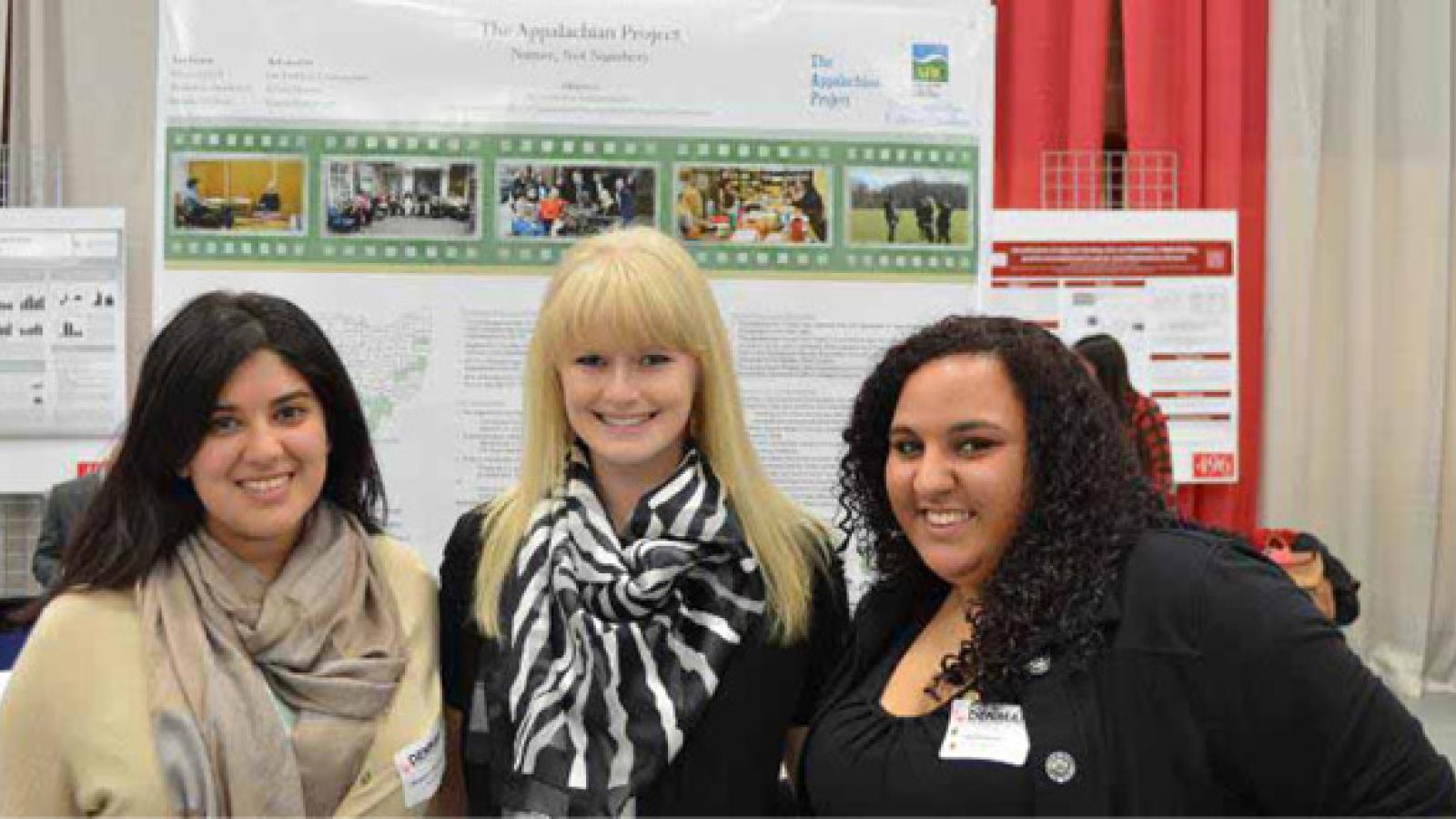The Appalachian Project, Ohio
Presenters: (in photo order) Madeline Stockwell, Brooke Walters, Raven Lynch
Advisor: Prof. Patricia Cunningham
The Appalachian Project, Ohio is a mixed-methods, interdisciplinary research study that aims to better understand the factors that affect Appalachian students’ decisions and readiness about whether or not to pursue higher education. The major aim of this research is to provide a publicly available video documentary presenting our findings and a list of best practices and suggestions for educators and policy makers at the state and local level. Our research is motivated by our personal experiences as Appalachian students and Appalachian supporters. We hope our recommendations will make it easier for those Appalachian Ohio students who want to attend college to do so. The Appalachian Project team’s predominantly narrative approach to data collection relies on qualitative research in the form of recorded, one-on-one interviews and local site visits, supported by quantitative data to supplement information on local economies and education systems. There are approximately 3500 students at Ohio State who come from the 33 designated Appalachian Ohio counties that serve as possible participants. Though this is an substantial subject pool, we also find it important to conduct research beyond the university to improve the impact of the project and to encompass the population of affected communities within Appalachian Ohio. To date, project members have collected background research on the region, conducted site visits to ten counties, and accumulated over 200GB of video interviews with community members. We are exploring solutions to work toward creating a sustainable educational and economic atmosphere in Appalachian Ohio. The recent passage of the 50th year anniversary of the War on Poverty makes revisiting questions that center on the connection between economics and education particularly timely. By illuminating the economic and social challenges Appalachian students face when they choose to attend college, we hope to affect policies in a way that removes some of those obstacles.

